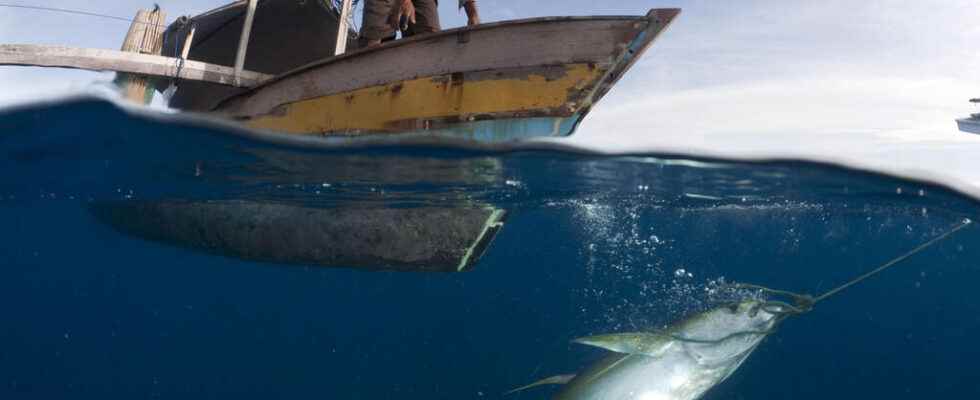In Indonesia, the inhabitants of a small island have taken unprecedented legal action to try to save their habitats from the disappearance that awaits them with rising waters.
From our correspondent in Southeast Asia,
The inhabitants of the island of Pari are taking legal action against the Swiss cement manufacturer Holcim. However, the Holcim company is not present on this island but is responsible for 0.42% of industrial CO2 emissions since 1750. These emissions contribute greatly to the warming of the atmosphere which causes the melting of glaciers and the rise of sea levels.
The plaintiffs therefore believe that Holcim is contributing in this way to the destruction of their habitat, and are asking the Swiss giant for two things: firstly, that it make a concrete commitment to reduce its emissions, secondly, that it help them financially in all the work that should be done to protect their island. This would require, for example, planting mangroves, building raised houses, improving desalination infrastructure to guarantee the supply of fresh water.
All these projects have been quantified, and the plaintiffs consider that Holcim should finance 0.42% of these operations, since it is therefore the origin of 0.42% of industrial CO2 emissions.
The construction sector singled out
This unique legal case is also an opportunity to focus on the pollution generated by the cement industry, and behind it the building sector. And this is one of the reasons that also motivated this complaint against Holcim in particular.
Although Holcim is no longer present in Indonesia, the country knows well the ravages of the cement industry, recalls Dewi Puspa, head of legal affairs at the Indonesian Forum for the Environment, which supports the inhabitants of the Paris Island: We have been able to observe, near industrial sites which produce cement, problems of water pollution and air pollution, and moreover several factories currently under development in Indonesia are in open conflict with the populations for these reasons. »
Coastlines already under threat
Finally, the cement industry is also very sand-intensive, and Indonesia remains a favorite territory for the sand merchants, who do not hesitate, thus, to aggravate the dangers which await all these littorals already threatened by the rising waters. Indonesia is indeed the largest archipelago in the world with 16,000 islands, and 2,000 which could be swallowed up by 2050. This therefore makes it a territory particularly vulnerable to the effects of global warming and this is also what to recall this increasingly publicized trial.
Dewi Puspa does not hide it, she hopes that this trial can help restore a semblance of balance between the Indonesian victims of global warming who have a derisory carbon footprint and the major global industrial polluters: “ This lawsuit is the first of its kind in Indonesia, it can pave the way, because it is also an opportunity for other communities, other people who would also be legitimate if they held big companies to account by questioning their responsibility. in the climate crisis because of their CO2 emissions. »
If this legal action therefore remains unprecedented in the way it links a large company to the local effects of rising waters, the process of seeking justice to counter the effects of industrial pollution is not unprecedented in Indonesia. , and has even been able to bear fruit in the past: last year the Indonesian president, three ministers and the authorities of the capital Jakarta were thus found guilty of non-compliance with air pollution regulations.
